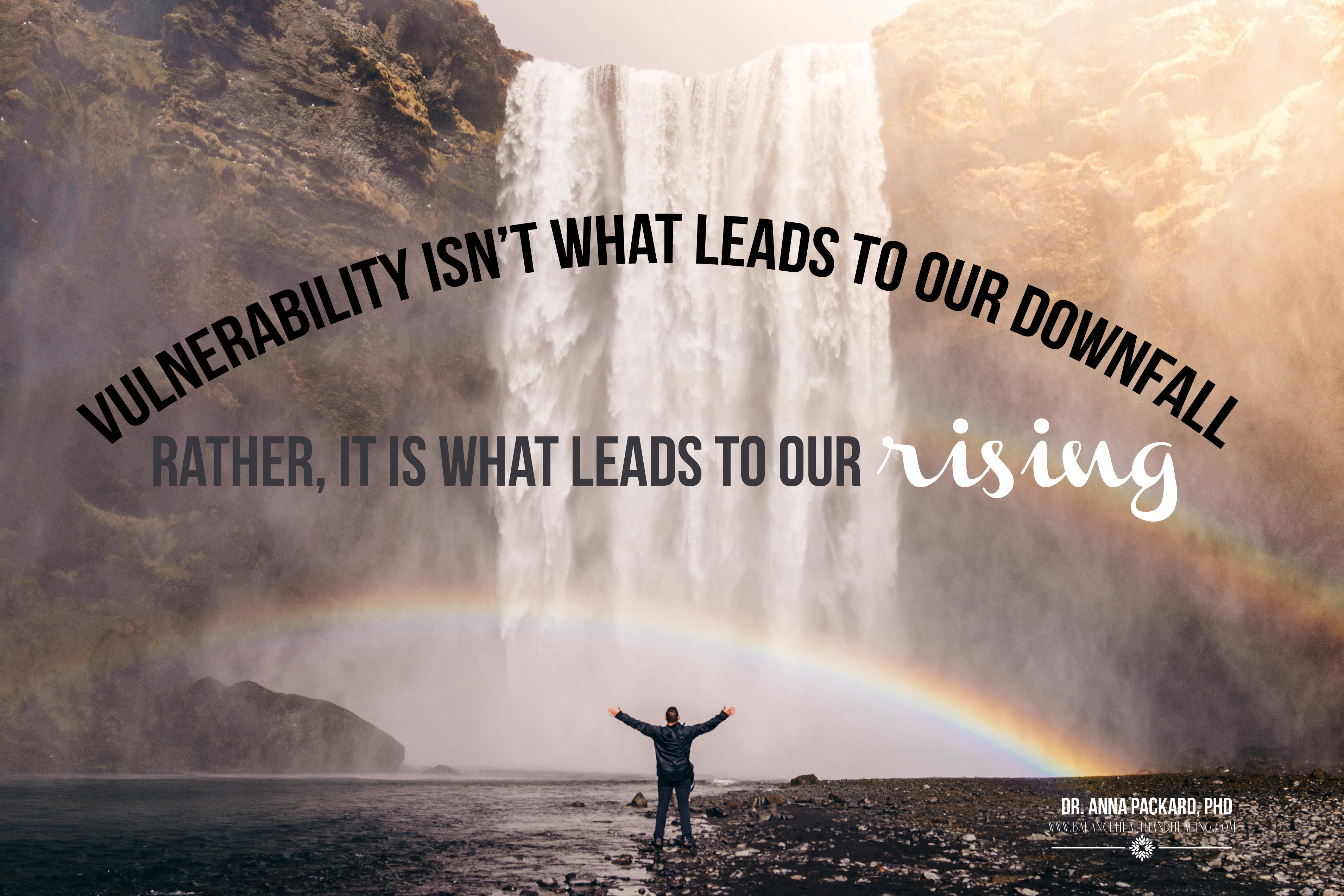“When we were children, we used to think that when we were grown up, we would no longer be vulnerable. But to grow up is to accept vulnerability. To be alive is to be vulnerable.”- Madeleine L’Engle.
Vulnerability is a word laden with meaning and elicits varied emotional responses or reactions. There are several misconceptions surrounding this word. Perhaps the most ubiquitous misconception about vulnerability is that it is synonymous with weakness.
Brene Brown, the author of several books that address shame, vulnerability and engaged living, defines vulnerability as, “uncertainty, risk and emotional exposure.” The definition denotes discomfort and I would heartily agree that feeling vulnerable is often not a comfortable feeling. But we shouldn’t confuse discomfort with weakness.
Bravery, not Weakness
In fact, vulnerability is the opposite of weakness. Vulnerability isn’t what leads to our downfall, rather it is what leads to our rising. It is the avenue through which we live a more engaged, connected, authentic, and meaningful life. The things in life that are worthwhile, inherently involve risk. We watch others take risks and we think, “that was brave,” but we fail to apply that perception to ourselves. But rather than being synonymous with weakness, vulnerability is synonymous with brave.
Taking risks, such as pursuing a dream, taking an interpersonal risk in service of creating or strengthening relationships, or seeking support for healing and struggles in your life, all involve vulnerability, aka bravery. It is brave to turn in an application to college after being out of school for two decades. It’s brave to have a difficult conversation with your partner about your needs and wants in the relationship. It is brave to show up in a therapist’s office for help and support.
But when we believe that vulnerability is weakness, we engage in behaviors we believe eliminate, suppress, or enable us to avoid vulnerability. These behaviors are maladaptive, unhealthy, and take us further away from the things that will bring us greatest satisfaction, joy, connection and authenticity. At the most benign, these behaviors may look like numbing out and binge watching a Netflix series. At the most destructive these behaviors can take the shape of life destroying patterns such as addictions, eating disorders, unhealthy boundaries and damaging relationships. Whether benign or life altering, behaviors designed to avoid vulnerability, ironically create more suffering due to their consequences. These behaviors leave us empty, disconnected, lonely, and stuck being observers of life, instead of participants in our lives
Step into Vulnerability
The other irony of these maladaptive behaviors is that we delude ourselves to believe we can truly eliminate or avoid vulnerability. As Madeleine L’Engle points out in the quote above, “To be alive is to be vulnerable” (emphasis added). Our choice then lies, not in whether we will be vulnerable or not, but rather, how we will respond to vulnerability. Or put another way, how will we show up in the face of vulnerability?
Another misconception about vulnerability, however, is the belief that showing up for vulnerability means, “letting it all hang out there.” Healthy vulnerability involves self-care as well as good, interpersonal boundaries. We need support on our journey to “dare greatly” and we choose to be interpersonally vulnerable with those who have earned our trust. This support breeds connection, accountability, and helps facilitate the other steps we take to live more engaged in our lives.
Choosing vulnerability instead of attempting to avoid, suppress, or eliminate vulnerability, opens up a world of possibilities for us. It presents us with a two-sided coin. On the one side is the uncertainty, risk, and emotional exposure. On the other side of the coin is connection, authenticity, meaning, creativity, healing, and success. You can’t live an engaged life without vulnerability. So if we want to be true participants in the one life we have to live: the life we have right now, we must breathe deeply and step into vulnerability.


